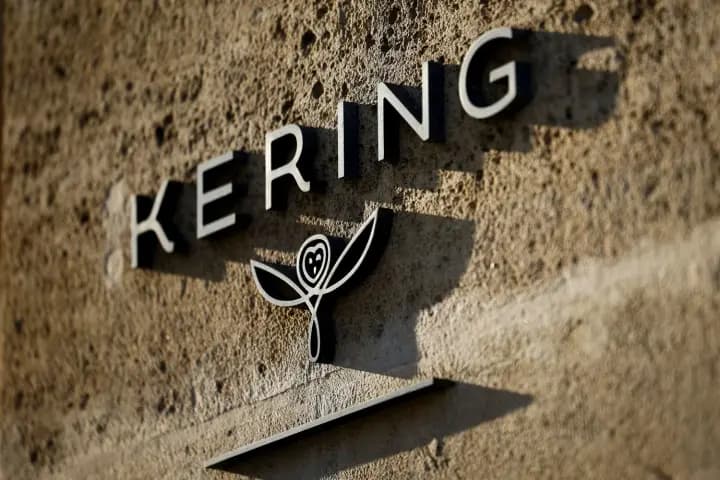We're loading the full news article for you. This includes the article content, images, author information, and related articles.
Luxury conglomerate Kering, owner of Gucci, is divesting its beauty division to L'Oréal for €4 billion, a strategic move aimed at reducing debt and sharpening its focus on core fashion brands amidst a challenging global luxury market.

In a significant corporate restructuring, French luxury group Kering, which owns iconic brands such as Gucci, Bottega Veneta, and Balenciaga, has announced the sale of its beauty division to L'Oréal for €4 billion (approximately KES 580 billion). The deal, unveiled on Monday, October 20, 2025, at 11:57 AM EAT, marks the first major strategic shift under Kering's new chief executive, Luca de Meo.
The acquisition by L'Oréal will include Kering's fragrance line Creed, established in 1760. Furthermore, the agreement grants L'Oréal exclusive 50-year licensing rights to develop and market fragrance and beauty products under Kering's prominent fashion labels, including Gucci, Bottega Veneta, and Balenciaga.
The luxury goods market, while generally resilient, has faced evolving consumer preferences and economic shifts globally. For Kering, this divestiture represents a pivot from the strategy pursued by its former chief executive, François-Henri Pinault, whose family maintains control of the group. The move is intended to streamline operations and enhance financial stability in a competitive landscape.
The transaction is subject to customary regulatory approvals. Such large-scale mergers and acquisitions in the European Union typically undergo scrutiny from competition authorities to ensure fair market practices and prevent monopolies. The deal's structure, including the 50-year exclusive licence, highlights the long-term strategic planning involved in the luxury and beauty sectors.
Luca de Meo, who assumed the role of chief executive less than two months ago, has prioritised reducing Kering's substantial debt burden and re-centring the company's efforts on its core fashion business. This strategic reorientation aims to reassure investors and improve the company's financial health. The sale is expected to significantly reduce Kering's net debt, which stood at €9.5 billion (approximately KES 1.38 trillion) at the end of June, in addition to €6 billion (approximately KES 870 billion) in long-term lease liabilities.
While the sale is expected to alleviate Kering's debt, the long-term implications for its brand portfolio and market positioning will be closely watched. For L'Oréal, this acquisition strengthens its luxury beauty segment and expands its portfolio of high-profile fragrance and cosmetic licences. The deal could reshape competition within the global luxury beauty market.
The full financial impact of the deal on Kering's profitability and future growth trajectory remains to be seen. Details regarding the integration of Creed into L'Oréal's portfolio and the specific marketing strategies for the licensed Kering brands will unfold over time. The market's reaction to this significant strategic shift will also be a key area of observation.
The current agreement for Gucci fragrances with Coty is set to expire in 2028. The new 50-year deal with L'Oréal will commence immediately after this expiry. This phased transition allows for a smooth handover of operations and brand management.
Observers will be keen to monitor Kering's performance in its core fashion business following this divestiture, as well as L'Oréal's expansion in the luxury beauty sector. The impact on consumer loyalty and brand perception for Gucci, Bottega Veneta, and Balenciaga beauty products under L'Oréal's stewardship will also be a critical area to watch.
Keep the conversation in one place—threads here stay linked to the story and in the forums.
Sign in to start a discussion
Start a conversation about this story and keep it linked here.
Other hot threads
E-sports and Gaming Community in Kenya
Active 9 months ago
The Role of Technology in Modern Agriculture (AgriTech)
Active 9 months ago
Popular Recreational Activities Across Counties
Active 9 months ago
Investing in Youth Sports Development Programs
Active 9 months ago